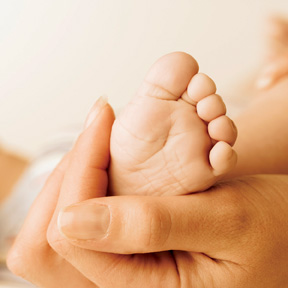
If you are interested in becoming a living kidney donor and are in good health, here are some steps you can take. More details
 There are many factors that influence sexuality after transplantation – how you feel physically and how you feel about yourself. Sexual intimacy can begin any time after surgery, as long as you have the interest and feel well. However, wait 4-6 weeks to have sexual intercourse. This will allow time for your incision to heal. Communication is the most important factor in any relationship. Wherever there is a problem share your feelings and fears with your partner. Nursing and medical staff recognise that you may have difficulties, in sexual relationships, and will gladly talk to you and your partner. Professional guidance can help — all that may be needed is a little reassurance.
There are many factors that influence sexuality after transplantation – how you feel physically and how you feel about yourself. Sexual intimacy can begin any time after surgery, as long as you have the interest and feel well. However, wait 4-6 weeks to have sexual intercourse. This will allow time for your incision to heal. Communication is the most important factor in any relationship. Wherever there is a problem share your feelings and fears with your partner. Nursing and medical staff recognise that you may have difficulties, in sexual relationships, and will gladly talk to you and your partner. Professional guidance can help — all that may be needed is a little reassurance.
 Men
MenDifficulty with sexual function, for men, is not uncommon after kidney transplantation as the body gets used to being healthy again. Much of the time this is a psychological difficulty rather than any specific physical problem.
Diabetes, or some blood pressure medication, can cause impotency. If this happens discuss it with your doctor, as there are now very effective medications which can resolve these issues. As men get older the prostate gland may become enlarged resulting in difficulty passing urine, with poor flow or having to get up at night. Again, there are very effective medications or a small operation may be needed which can deal with these problems if you discuss them with your doctor.
 Women
WomenMost women usually stop menstruating while on dialysis. Following kidney transplantation, many women find that their periods return within a couple of months. However, sometimes they will be irregular for the first few months. If you persist being very irregular let your doctors know and they may arrange for you to see a gynaecologist.
It is important to be aware that you may become pregnant at any stage post-transplant if you are sexually active and do not take precautions. We advise that you do not become pregnant for 2 years after kidney transplantation. If you plan to become pregnant discuss it with your doctor before you stop any contraceptive measures.
All transplanted women, who are sexually active, need to have a smear test annually.
When you have a kidney transplant you need to discuss your contraceptive requirements carefully with your transplant nurse or doctor. Generally, the pill is not suitable for transplant patients because of the risks of blood clots and blood pressure. The most suitable forms of contraception are either for the man to wear condoms or for women to use the Progesterone only pill or the DepoProvero contraception injection. The Mirena coil can also be considered.
 Having A Baby After Kidney Transplant
Having A Baby After Kidney TransplantIf your transplant is functioning well and your blood pressure is well controlled, and you do not have much protein in the urine, then you may well be able to safely have a baby. There have been thousands of babies successfully born to transplant patients across the world. However, you should not plan to become pregnant until two years after transplant. Many of the medications that you are on may interfere with a baby's growth and, so, your doctor should switch these around prior to you becoming pregnant. It is also important to take vitamins, like iron and folic acid, prior to becoming pregnant.
Breast cancer is no more common after a kidney transplant than in the general population. It is none the less, common in women in general. The best way to treat breast cancer is to diagnose it early. Mammography is available for women between the ages of 50 and 65. If you are offered a free mammogram you should keep the appointment.